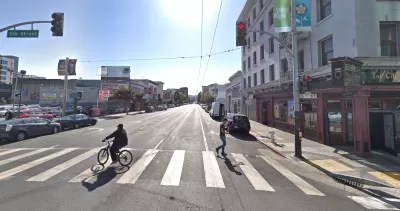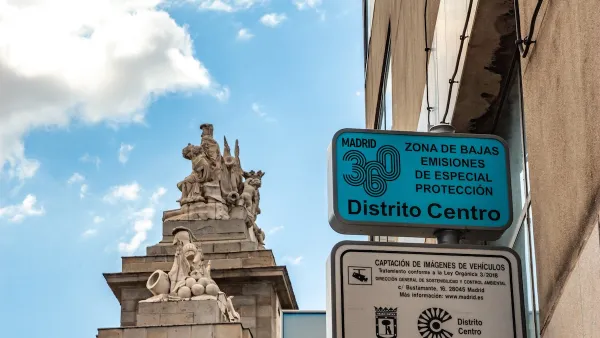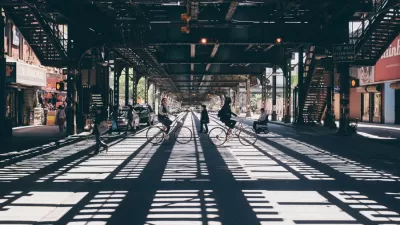A happy accident, Madrid may have stumbled onto a bike infrastructure program with great results. Only time will tell if "slow" lanes yield long-term positive results.

"What would you do if your city built a comprehensive network of generous mobility lanes that were open only to bikes and scooters — but put them in the middle of the roadway, surrounded by fast-moving car traffic on both sides?" asks Kea Wilson.
In Madrid, vehicular cycling infrastructure is doing just that. Rather than constructing protected bike lanes or painting the streets with new thoroughfares for non-motor vehicles, Madrid implemented "slow" lanes, reducing the once higher-speed lanes of traffic to a more mild 30 kilometers (about 19 miles) per hour to promote biking and alternative modes of transportation.
Counterintuitively, making space for riders in the middle lanes of vehicular traffic could make them even safer when cycling. We need more data to understand whether the Madrid approach works, says Wilson.
Madrid saw an increase in bikers, writes Wilson:
The new lanes were paired with enforcement for drivers who broke the 30 KmPH speed limit in those lanes, as well as a new e-bike share program to encourage would-be riders to conquer the hilly city on two wheels. in time, the city did experience a gradual increase in the share of bikes on the road, peaking at 6 percent by 2018. (By contrast, fewer than 1 percent of U.S. trips are taken by bicycle.)
FULL STORY: Is it Time for the U.S. to Try the ‘Madrid Model’ of Vehicular Cycling Infrastructure?

Maui's Vacation Rental Debate Turns Ugly
Verbal attacks, misinformation campaigns and fistfights plague a high-stakes debate to convert thousands of vacation rentals into long-term housing.

Planetizen Federal Action Tracker
A weekly monitor of how Trump’s orders and actions are impacting planners and planning in America.

San Francisco Suspends Traffic Calming Amidst Record Deaths
Citing “a challenging fiscal landscape,” the city will cease the program on the heels of 42 traffic deaths, including 24 pedestrians.

Adaptive Reuse Will Create Housing in a Suburban Texas Strip Mall
A developer is reimagining a strip mall property as a mixed-use complex with housing and retail.

Study: Anti-Homelessness Laws Don’t Work
Research shows that punitive measures that criminalized unhoused people don’t help reduce homelessness.

In U.S., Urban Gondolas Face Uphill Battle
Cities in Latin America and Europe have embraced aerial transitways — AKA gondolas — as sustainable, convenient urban transport, especially in tricky geographies. American cities have yet to catch up.
Urban Design for Planners 1: Software Tools
This six-course series explores essential urban design concepts using open source software and equips planners with the tools they need to participate fully in the urban design process.
Planning for Universal Design
Learn the tools for implementing Universal Design in planning regulations.
Heyer Gruel & Associates PA
JM Goldson LLC
Custer County Colorado
City of Camden Redevelopment Agency
City of Astoria
Transportation Research & Education Center (TREC) at Portland State University
Jefferson Parish Government
Camden Redevelopment Agency
City of Claremont





























